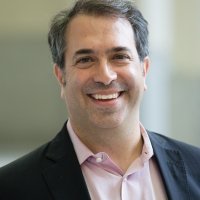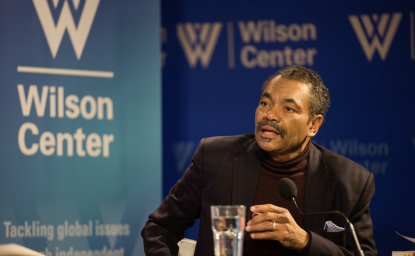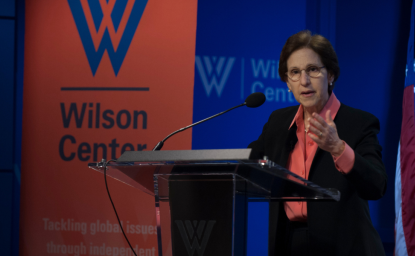
A blog of the Wilson Center
Q: How have China's political and economic relations with the LAC region differed in recent years from that of the United States with the LAC region?
A: In the wake of the 2008 global financial crisis, China’s policy banks extended financing to Latin America, with the goal of helping Chinese firms maximize markets in key strategic sectors. To increase China’s long-term commercial presence, these banks often offered cheap market financing to expand the web of Chinese firms, contractors, and suppliers regionally. By comparison, U.S. commercial and multilateral banks have tended to promote profit maximization through bankable projects in the private sector. Chinese policy banks have thus operated as a more patient form of capital, with a relatively longer, more risk-tolerant horizon than Western bankers. China’s patient capital has helped China expand its overseas presence in regional markets, ranging from hydroelectric and nuclear power to infrastructure and solar energy.
Q: Do you expect United States-LAC economic and political relations to change under the Biden administration?
A: The Biden administration has a unique opportunity to forge a new foreign policy direction in Latin America, by ‘building back’ regional ties based on shared priorities in healthcare, renewable energy development, environmental sustainability, social protection, and the digital economy. With Latin America now accounting for about one-third of coronavirus deaths in the world, enhancing the region’s access and distribution to U.S. vaccines is an essential first diplomatic step!
Q: Could you share any upcoming projects that you’re working on?
A: I just finished my latest book, entitled Globalizing Patient Capital: The Political Economy of Chinese Finance in the Americas (Cambridge University Press, 2021) that I was researching and writing during my fellowship year at the Wilson Center. The culmination of extensive field research across China and Latin America, the book argues that China's overseas financing is a distinct form of patient capital that marshals the country's vast domestic resources to create commercial opportunities internationally. Its long-term risk tolerance and lack of policy conditionality has allowed developing economies to sidestep the fiscal austerity tendencies of Western markets and multilaterals. Notwithstanding endowing national governments with such economic policy flexibility, its lending contracts are instead embedded with commercial conditionality, such as commodity guarantees, Chinese foreign content, and cross-default clauses, which risk intensifying developing nation’s ongoing struggles with debt and dependency.
Q: How has your time at the Wilson Center impacted your research and understanding of your field?
A: After interviewing more than 250 bankers, government officials, negotiators, lawyers, and management consultants across China and Latin America over the last five years, I have been immersed in a wealth of political economy and financial knowledge about creditor-debtor relations between Asia and Latin America. However, conversations, conferences, and seminars with leading Wilson Center scholars and staff were essential to the book project, as they helped me better understand U.S. security concerns at the intersections of these cross-national economic relationships.
Q: What is your favorite project or memory from the Wilson Center?
A: My favorite, non-professional memory was playing centerfield for the Fourteen Points, the Wilson Center’s summer softball league team. Similar to the open exchanges between scholars, practitioners, and staff in the Wilson Center hallways, I found belting baseballs while contemplating grand strategy to be a delightful way to approach our national pastime. I also enjoyed the dozen-plus donuts that would magically appear in Woodrow Wilson’s arms beside the conference room whenever we scored more than 14 points!
Q: Do you have any advice for a student interested in your field?
A: Do not balk at pursuing your passion for international affairs! It can be difficult to navigate our nebulous field during the early years of a profession, but specializing in international affairs can deliver dynamic and stimulating rewards over the long-run. Notwithstanding its myriad of career possibilities, you will find ways to hone your expertise, skills, and knowledge through your professional and educational experiences. Be patient.
**The Wilson Center's Latin American Program and Kissinger Institute will host a book launch for Dr. Kaplan's forthcoming book this summer.
Author

Associate Professor of Political Science and International Affairs, George Washington University

Latin America Program
The Wilson Center’s prestigious Latin America Program provides non-partisan expertise to a broad community of decision makers in the United States and Latin America on critical policy issues facing the Hemisphere. The Program provides insightful and actionable research for policymakers, private sector leaders, journalists, and public intellectuals in the United States and Latin America. To bridge the gap between scholarship and policy action, it fosters new inquiry, sponsors high-level public and private meetings among multiple stakeholders, and explores policy options to improve outcomes for citizens throughout the Americas. Drawing on the Wilson Center’s strength as the nation’s key non-partisan policy forum, the Program serves as a trusted source of analysis and a vital point of contact between the worlds of scholarship and action. Read more


Kissinger Institute on China and the United States
The Kissinger Institute works to ensure that China policy serves American long-term interests and is founded in understanding of historical and cultural factors in bilateral relations and in accurate assessment of the aspirations of China’s government and people. Read more

Explore More in Scholar & Alumni Spotlight
Browse Scholar & Alumni Spotlight
Olufemi Vaughan: Shaping Governance Through Scholarship and Dialogue

Dr. Maurice Jackson: The Sounds of Resistance Throughout History


